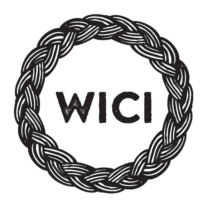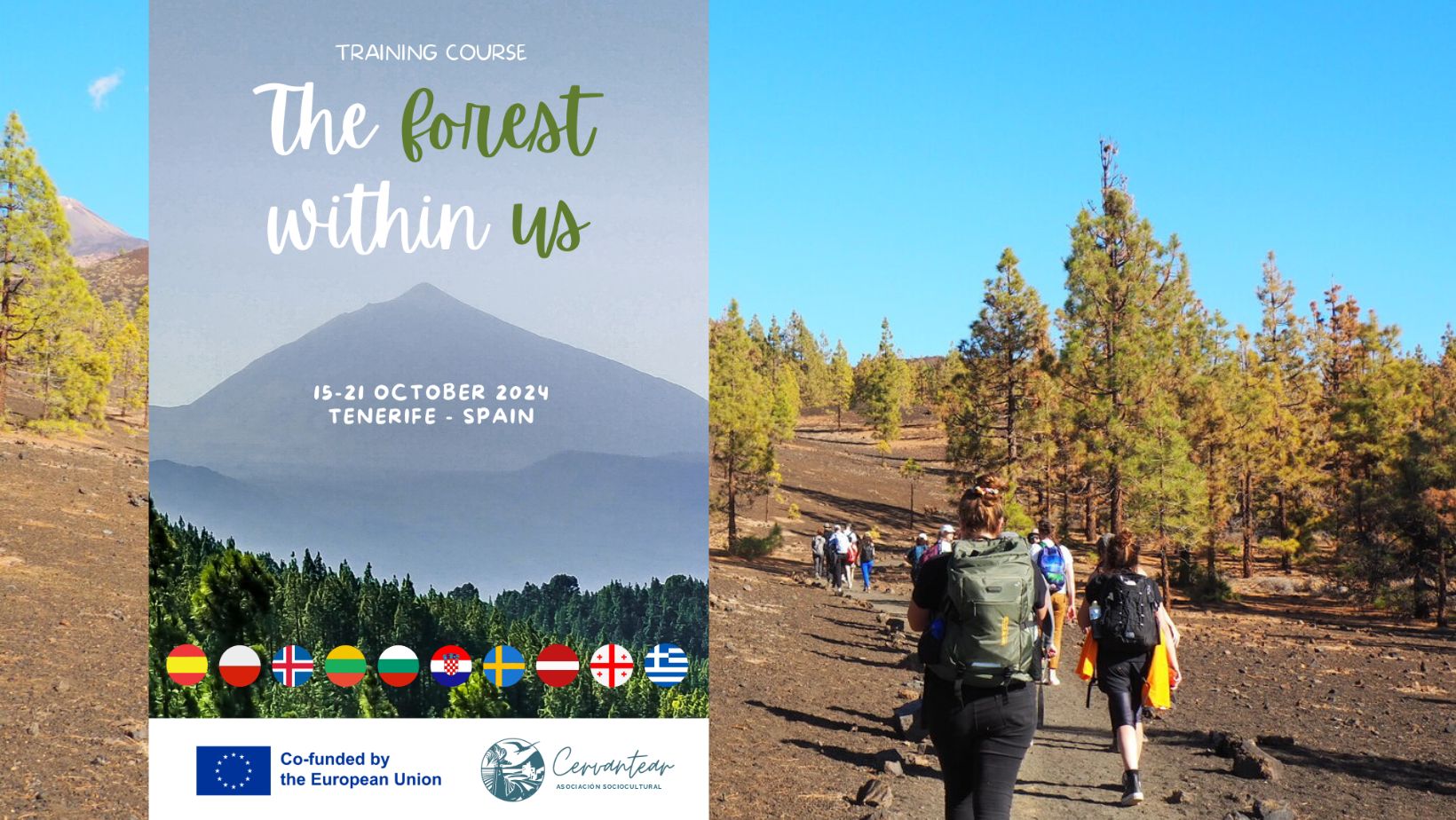Did you know that Wici is involved in the Erasmus+ Programme of the European Union? In fact, even before we officially established the association, we participated in training for educators and people working with youth and adults. Since founding Wici, we have also been able to organise such events. In previous years, we organized the Reconnecting to the Basics training and the networking meeting Nature-based Communities and Craftsmanship.
What are Erasmus+ training courses like?
These are several-day training sessions focused on learning through non-formal education (outside of school or university) in a group of people with similar interests and professional backgrounds related to adult and/or youth education. The training coordinator is the organisation that applies for funding from the national Erasmus+ Agency in their country. They invite organisations from other EU countries to collaborate and become project partners. Participants in the training must be residents of the countries participating in the project. Typically, 2-3 participants come from each country. A key aspect of training courses is establishing contacts with people from other organisations within the EU and partner countries to exchange experiences and create new international initiatives.
The Forest Within Us
From the 15th to the 21st of October 2024, Anna Kępa and Emilia Pawłusz took part in the Forest Within Us training course organised by Asociación Sociocultural Cervantear in Guía de Isora, located in the south of Tenerife.
The aim of the meeting was to exchange experiences and practically learn how to draw from and combine culture – art, traditions, legends, history – with nature, its resources, and the features characteristic of a specific place, in education. The climate crisis urges us to recognise the importance of the natural environment and reflect on how to incorporate nature into the education of new generations. At the same time, working with culture is crucial for promoting understanding, tolerance, and the harmonious coexistence of different communities. The combination of nature and culture holds the potential for education and social transformation.
Over 20 people attended the training, representing organisations from Spain, Greece, Croatia, Bulgaria, Sweden, Lithuania, Latvia, Poland, and Georgia.





Nature and Culture
The training course consisted of two parts. During the first few days, the Cervantear team, through practical exercises, including those outdoors, showed us the educational methods they use in their activities on Tenerife. Through outdoor learning and participation in creative workshops (literary, artistic, and performative), we learned tools to use in working with both youth and adults. We deepened our knowledge of how to design high-quality educational activities that draw from both cultural identity and the nature of a given place. The overall structure of the exercises involved introducion, providing timeframes and locations, carrying out the exercise, and reflecting on it individually and in groups. Each day ended with reflection and giving feedback to one another, allowing us to engage more consciously with the programme.
The Local Context
Tenerife, with its pre-colonial history and stunning ecosystem (volcanoes, laurel forests, and black beaches), provided an excellent setting for creating educational activities. At the centre of the island stands the El Teide volcano (the highest peak in Spain), which has dominated the landscape for centuries.
The workshop in the Teide National Park (Parque Nacional del Teide) was an opportunity to learn about the history and myths of the Guanches, the people who lived on Tenerife before its conquest by the Spanish. After an hour of hiking up the black, rocky slopes under the full sun, surrounded by vast spaces of volcanic black stones, we did a short exercise where we enacted one of the Guanche myths. Experiencing this in such unique conditions, amidst the volcanoes, was incredibly valuable.





Another fascinating element of the programme was a walk through the laurel forests, combined with team-building exercises and nature education. The laurel forests on Tenerife, known as Laurisilva, are a true relic of the prehistoric Tertiary period. Once covering much of Southern Europe and North Africa, they disappeared with the cooling of the climate. Today, they have mostly survived on the Canary Islands, Madeira, and the Azores. Their lush vegetation, filled with moss-covered trees, ferns, and endemic species, creates a magical, almost fairy-tale atmosphere.
The longer we stayed in the forest, the more we felt the moisture around us. Water literally condensed on our clothes, hair, and faces. This happens because the laurel forests act as natural “cloud catchers.” The trees and leaves capture moisture from the trade winds, clouds, and mists, condensing the water, which then flows down to the soil, replenishing springs and streams. This provides a constant water supply to the island, which is crucial in its dry climate. Without these forests, Tenerife would face much greater challenges in accessing drinking water. Therefore, maintaining and expanding the forested areas is invaluable from the perspective of the water management of all the Canary Islands.



Effects of Mass Tourism on the Canary Islands
During the training, we also discussed social issues, including the impoverishment of local residents, which has been exacerbated by mass tourism and the purchase of land by foreign investors at undervalued prices. During our stay in Tenerife, a demonstration took place against the redevelopment of one of the local beaches. This situation highlights that, although tourism and the construction of hotels and infrastructure contribute significantly to the island’s budget, local authorities and the community must take decisive action to regulate the impact of tourism on the environment and the well-being of residents.
We spent a lot of time looking at the alternative – sustainable tourism, which does not exploit nature and residents but instead supports their entrepreneurship and the long-term well-being of the islands. One of the key elements of such tourism is providing visitors with in-depth educational and recreational experiences so that tourists understand the place, the people, and the local environment.
Time for Reflexion
During the Forest Within Us project, there was also time for introspective exercises. One of these was Blackout poetry. Participants work with a pre-existing text (e.g., a newspaper page, a book, a leaflet), covering most of the words and leaving only those that form a new, poetic meaning. In our version, we also added photos and slogans cut out from newspapers. The result was sometimes absurd and satirical, while at other times it was very poetic and profound.
Another reflection-based exercise was City as a Human. While looking at the ocean, we imagined the cities or neighbourhoods we live in as a person, assigning them human characteristics such as appearance, personality, clothing style, and habits. It was a good moment to ask ourselves whether we live in a place we like, what we value about it, and what might be a problem for us.


Designing Exercises for Non-Formal Education
In the second part of the training, divided into groups, we designed our own educational exercises to test in the field. We could choose between a pine forest or a crowded beach. The groups that chose nature prepared exercises focused on sensory awareness, mindfulness, deepening the connection with nature, and understanding the interdependence of the ecosystem. On the beach and around it, we carried out exercises related to observing the place and people, identifying social phenomena and issues. A common feature of all the activities was deepening the relationship with the surroundings. It turns out that even after spending just a few days somewhere, we can immerse ourselves in the place, be mindful of its specifics, and get to know it quite well.
The result of the training is a collection of educational activities for youth that we designed and tested in international groups. We would like to sincerely thank the organisers and fellow participants for their collaboration in this exceptional project!
Project partners: Learning Seed (Greece), Young People in Focus (Croatia), BFree (Bulgaria), Wellbeing LAB, Erasmus+ Sweden (Sweden), Vivid Future Youth (Lithuania), Solis Dabā (Latvia), Radi Vidi Pats (Latvia), YPE • Youth for Peace and Equality (Georgia), and the WICI Association (Poland).
Official project website.
Organiser: Asociación Sociocultural Cervantear (Tenerife, Spain).
Photos: David Perdomo, Emilia Pawłusz and other participants.



You must be logged in to post a comment.